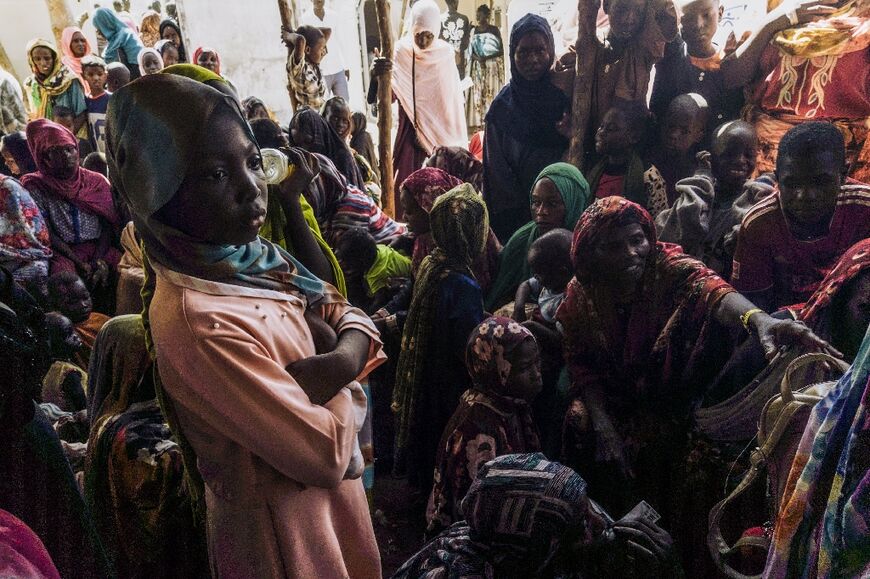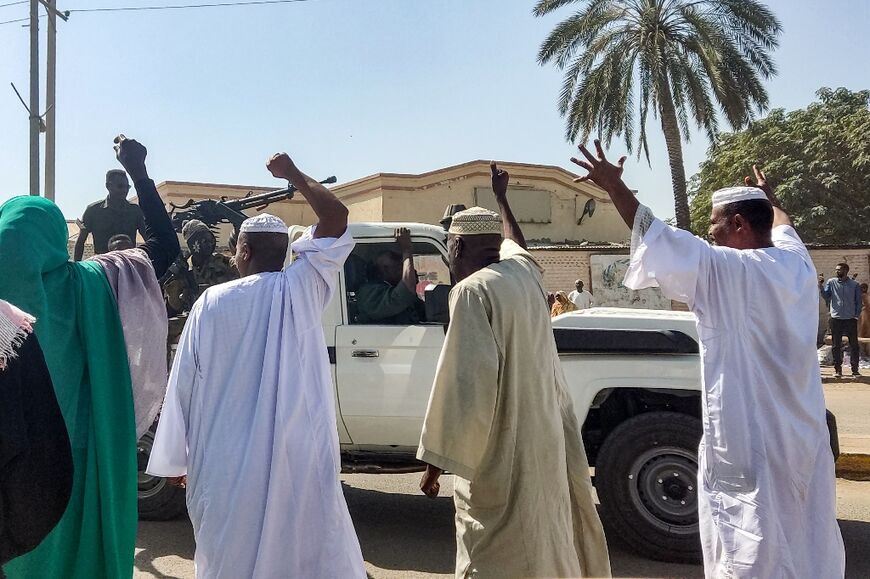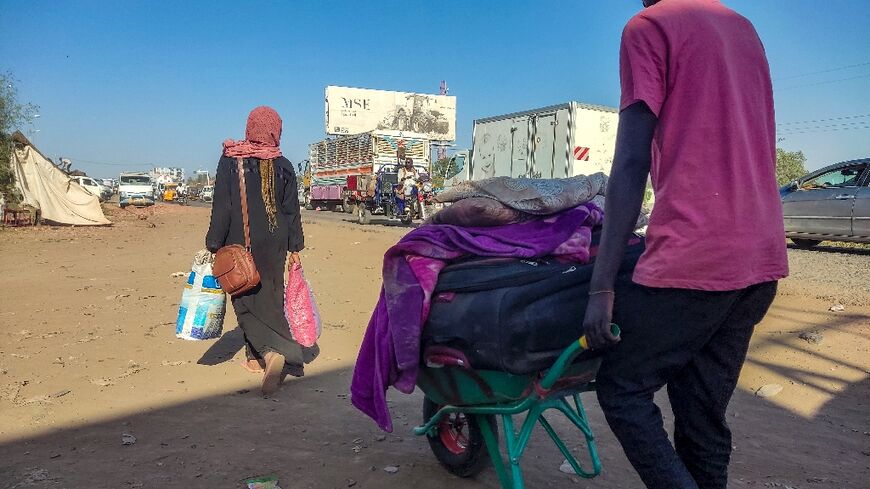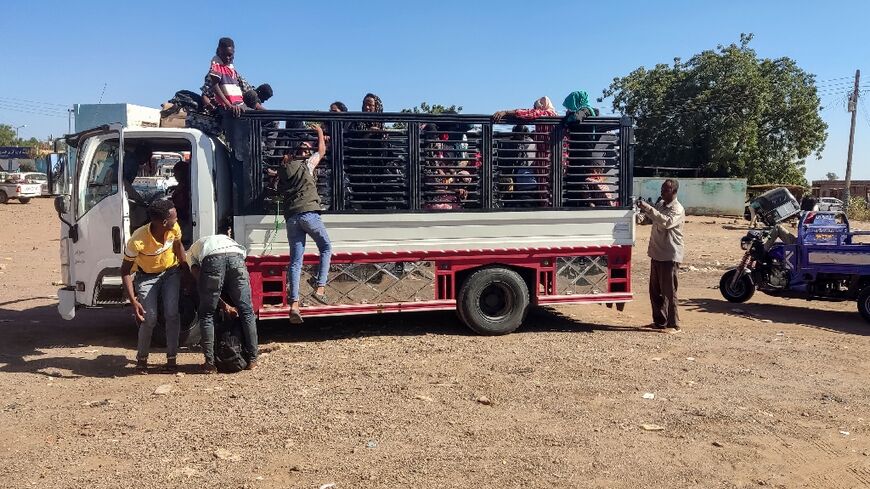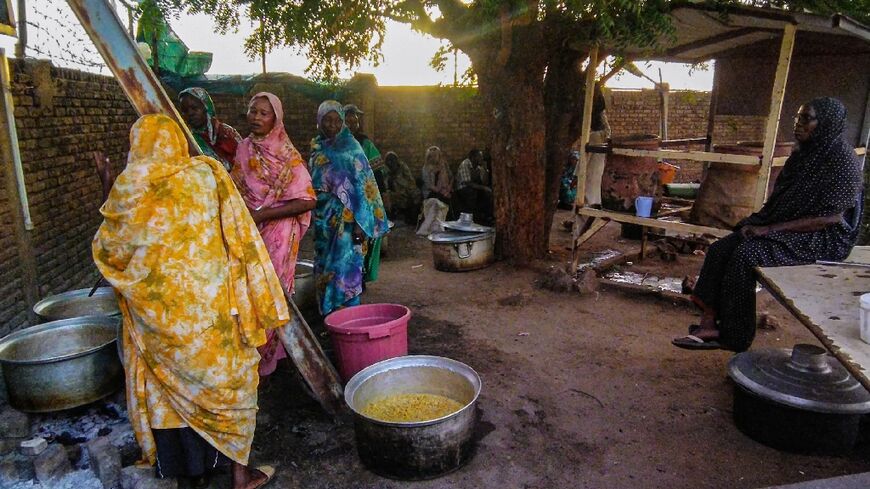Sudan's displaced forced to flee again as safe zones shrink
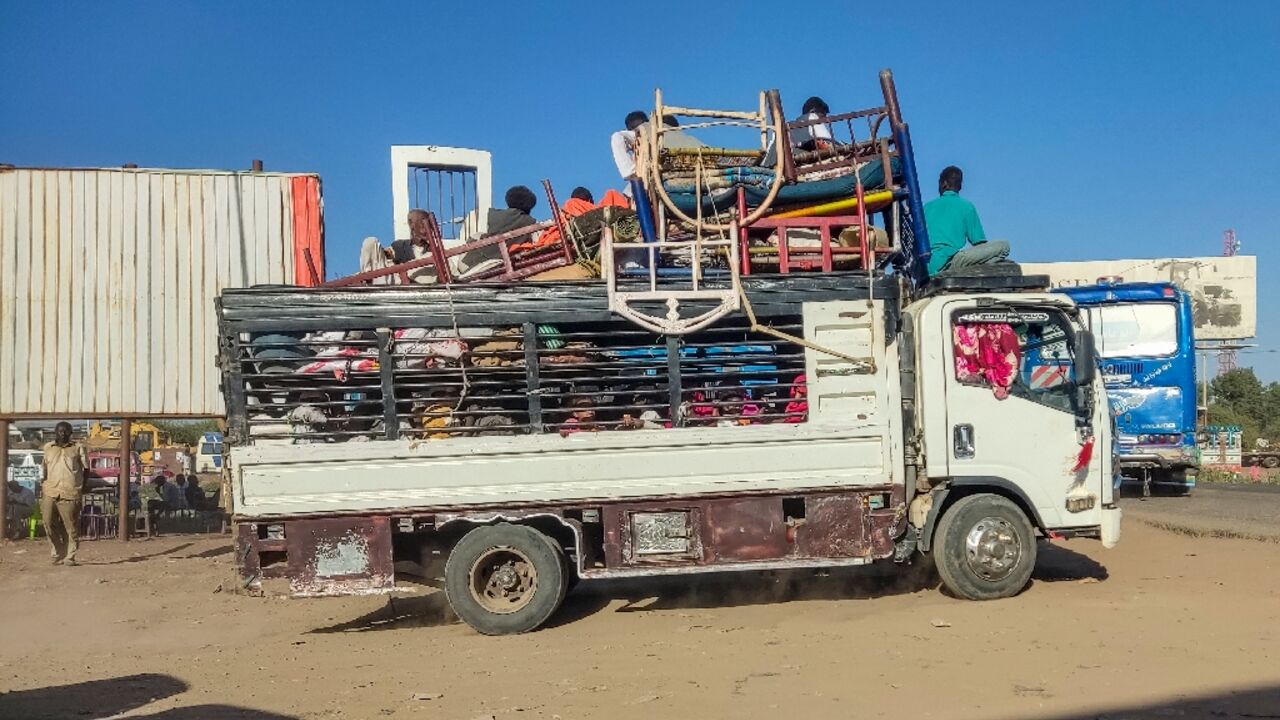
Mohamed Ibrahim had barely settled into life in Sudan's main agricultural centre after fleeing fighting in the capital Khartoum, only to discover the war had again arrived on his doorstep.
"Seven months ago, when the battles intensified in Khartoum, I was displaced with my family to Wad Madani" 180 kilometres (110 miles) south, the 53-year-old said.
Thousands of families made the same move, and Wad Madani, the capital of Al-Jazirah state, quickly became a safe haven and a crucial hub for aid operations.
Now with the regular army under attack in the city by paramilitaries of the Rapid Support Forces (RSF), Ibrahim and his family are on the move again.
More than half a million people had found shelter in Al-Jazirah, Sudan's pre-war breadbasket, before the fighting engulfed the state capital.
More than 300,000 people have fled the state, UN secretary-general's spokesman Stephane Dujarric said on Thursday.
According to the International Organization for Migration, many left "in panic and with no other option than fleeing on foot".
The International Committee of the Red Cross, which pulled out its staff last week as fighting reached the city, appealed for "lifesaving access to all areas affected by fighting as humanitarian needs soar".
"We fear that Wad Madani, once considered a safe haven for people fleeing extreme violence in Khartoum, is turning into another death trap," said the head of the ICRC's Sudan delegation, Pierre Dorbes.
"We saw desperate people running away in panic to the sound of explosions amid traffic jams and chaos. Each time this happens, family members get separated, and vulnerable people, like the elderly and people with disabilities, are left behind," he said.
In Sennar, 100 kilometres (60 miles) south of Wad Madani, Ibrahim's family can't find housing.
"It's the same thing we went through in our first days in Wad Madani," he said.
Others, like 44-year-old Abdel Rahim Mohamed Imam, headed east to Al-Faw, 120 kilometres (75 miles) away, where his family "is now staying at a friend's house," he told AFP.
- Fleeing on foot -
By early December, the war between the army and the RSF had killed 12,190 people, according to a conservative estimate by the Armed Conflict Locations and Event Data project.
It has displaced more than 7 million people inside the country, while at least 1.4 million more have fled abroad, according to UN figures.
In a bitter reminder of the first days of war in Khartoum, those who had tried to make a home in Wad Madani saw the city overrun by the same violence they hoped they had left behind.
As the rival security forces battled for the city's strongpoints, shopkeepers boarded up their stores to ward off looters while women disappeared from the streets for fear of sexual violence.
With the paramilitary fighters pressing deeper into the city, transport quickly became near impossible to find.
Omar Hussein, 65, said he and his family walked for 10 kilometres (six miles) before they found a driver willing to take them to safety.
"We're just trying to get to Gedaref," 240 kilometres (150 miles) east, Hussein told AFP.
"We have family there we can stay with."
But in both Gedaref and Sennar, "the humanitarian situation is dire," the UN refugee agency's spokesman William Spindler said Tuesday.
Gedaref is already facing multiple disease outbreaks, including cholera and dengue fever.
On Tuesday, RSF commander Mohamed Hamdan Daglo put out a statement hailing the "liberation" of Wad Madani "from the remnants of the old regime".
Despite persistent reports from Sudan's main battlegrounds of widespread abuses against civilians by combattants on both sides, the RSF chief "invited citizens who have been displaced to return to their homes".
